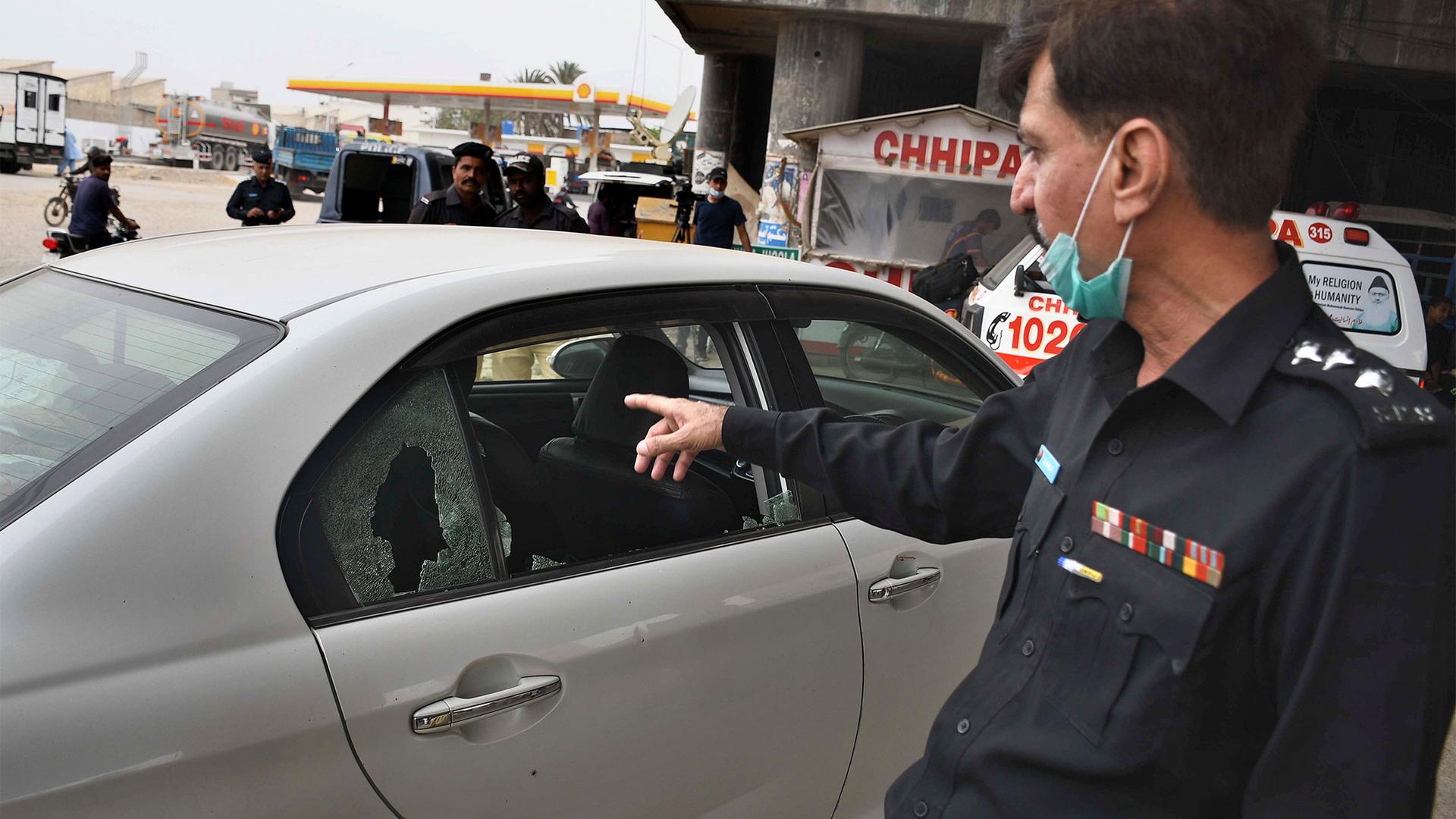Taliban takeover could mean more security challenges for Chinese projects in Pakistan
As the Taliban begin their rule in Afghanistan, instability brings uncertainty for neighboring Pakistan and China, which is Pakistan’s closest ally.
Pakistan and China have both signaled a willingness to engage with Taliban authorities, but recent attacks in the country have many worried.
Chinese nationals were the focus of two such attacks in Pakistan just last month. Nine engineers were killed in a bus explosion in Dasu on July 14. Weeks later, two Chinese engineers were targeted by a gunman in Karachi. Pakistan’s Foreign Minister blamed the Dasu bus attack on militants connected to the Pakistani Taliban — and was backed by Indian and Afghan intelligence agencies — but the group hasn’t claimed responsibility.
China has invested tens of billions of dollars in Pakistan over the years through its Belt and Road Initiative, an ambitious network of infrastructure and telecommunications projects around the world. In the past, militant groups in Pakistan, including the Pakistani Taliban, have targeted projects connected to BRI, in order to hurt Pakistan economically and destabilize the country. Anti-Chinese rhetoric has risen among Pakistani militant groups that oppose China’s increasing involvement.
“[If] this trend continues and the only friendly country stops coming to Pakistan and stops investing, this will hurt Pakistan [even] more than killing civilians in Pakistan,” said Hamayoun Khan, a strategic affairs expert in Islamabad.
Related: Can the Taliban make the ledgers work to govern?
“There’s going to be a power struggle going on [in Afghanistan]. It would have a devastating effect on the neighboring countries, particularly Pakistan.”
Khan said the Taliban takeover in Afghanistan could be a threat to Chinese projects if splinter groups decide to carry out more attacks inside Pakistan. “There’s going to be a power struggle going on. It would have a devastating effect on the neighboring countries, particularly Pakistan.”
Related: The biggest challenge for vaccine workers in Pakistan? Staying alive.
Attacks on Chinese workers in Pakistan date as far back as 2004, when a car bomb killed engineers in Gwadar, which became the flagship project of the China-Pakistan Economic Corridor. Subsequent high-profile attacks were carried out at the Chinese consulate in Karachi and at a hotel in Quetta, which was set to host the Chinese ambassador. Over the years, Pakistan has developed a security apparatus specifically intended to safeguard Chinese projects.
“If there’s an opportunity, [Chinese workers] are willing to consider the risks and still do it.”
China is Pakistan’s biggest foreign investor, and Pakistan relies heavily on Chinese support to bolster its economy.
In addition to an influx of workers for CPEC projects, more Chinese people have come to Pakistan over the years for their own private businesses. Recent attacks are not likely to discourage them from coming in the future, said Roger Lee, a restaurant owner in Islamabad. “If there’s an opportunity, they are willing to consider the risks and still do it.”
Related: Reflections on the 100-year anniversary of China’s Communist Party
Numerous CPEC projects in Pakistan are currently stalled, some of them for security reasons. Despite these challenges, there are also economic incentives that will bring in more Chinese business, said Mustafa Hyder Sayed, executive director of the Pakistan-China Institute.
“Pakistan offers a lower cost of production. It’s a neighbor of China. It’s conducive for Chinese companies to relocate to Pakistan, and I think [it has] reasonably good incentives. There’s room for improvement.”
When security for the projects falters, it puts pressure on both China and Pakistan.
The Dasu blast created a rare lapse in unified public messaging from the allies. Pakistan initially called the incident an accident. China condemned the bus crash as an act of terrorism and deployed its own team to investigate. An editorial in Chinese state media went a step further to say China could use special forces and missiles to safeguard projects if Pakistan’s capabilities weren’t sufficient.
Related: Hazara community demands justice for slain coal miners in Pakistan
Despite these warnings, Khan said the Chinese will continue to rely heavily on Pakistan for security, as both countries watch the evolving situation in Afghanistan.
“I think they are fully cognizant of the view that what is happening in the neighborhood would affect them. And they were anticipating it for … many years.” But despite this preparedness, the cost of doing business in the region has a degree of uncertainty about what will happen next.
“Even though we have a huge security network in place, when somebody is willing to come out and kill himself or herself for the sake of whatever ideology they have, there is very little you could do,” Khan said. “And we have seen that all over the world as well.”
